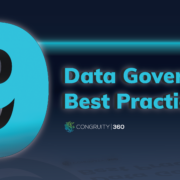For many companies and organizations, managing legacy data—information stored in outdated systems or formats—poses a significant challenge that can not be overlooked. Effectively managing your legacy data is crucial in maintaining business continuity, ensuring regulatory compliance, and unlocking valuable insights for strategic decision-making
Data governance plays a crucial role in modern enterprises. By managing the availability, usability, integrity, and security of data, it ensures high data quality throughout the data lifecycle. Effective data governance empowers organizations with a comprehensive view of their data, enabling better decision-making, regulatory compliance, and robust data security.
Building a robust data governance program is key to an organization’s successful management and utilization of its data assets. A data governance program fosters data accuracy, security, and regulatory compliance, thus driving more informed decision-making processes.
In today’s data-driven world, the push for data classification is more vital than ever. With the exponential growth of digital data and increasing threats from cybercriminals, efficiently categorizing and protecting sensitive data has become a top priority for businesses. Data classification not only provides a clear roadmap for data security measures but also optimizes data usage, making it a key player in business strategy.
Data governance is rapidly evolving, becoming a critical strategic component for organizations aiming to enhance privacy programs and safeguard personal information. With the dramatic increase in data generation and consumption, businesses are recognizing the immense value that lies within their data assets.
In the ever-evolving world of modern computing, GPUs have emerged as critical components, leaving a profound impact on both data processing and cost efficiency. Their relevance has expanded beyond their original design purpose of rendering visual imagery and video to running parallel operations on multiple datasets with remarkable efficiency. As we dive into the world of GPUs, we’ll explore how they have reshaped the landscape of cloud computing and virtual environments and their role in optimizing the cost of operations.
In the world of data governance, staying ahead of the game is critical. As AI and machine learning become more mainstream in the business world, policies and practices need to evolve to protect organizations from potential risks.
Data cleaning, also referred to as data cleansing or scrubbing, is a crucial step in the data management process.
Unstructured data is growing at an exponential rate, making unstructured data statistics a topic of great interest for the future of data. According to IDC, unstructured data will account for 80% of the data collected globally by 2025.
Data classification is the process of organizing and categorizing data into various types, forms or any other distinct class. This process is crucial for data management, data privacy, compliance adherence, and security.














